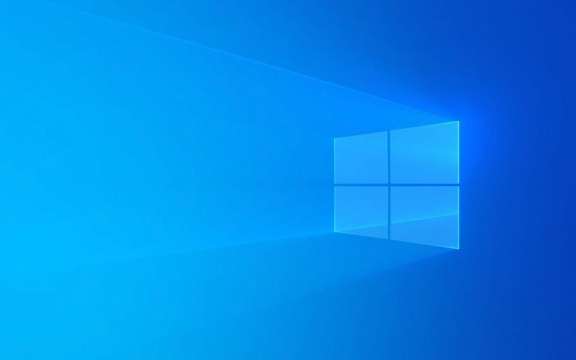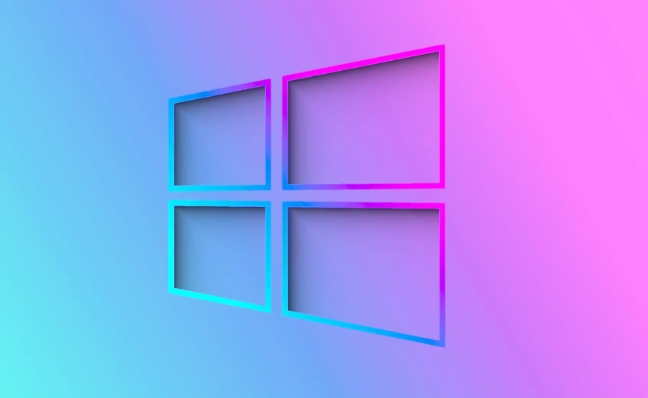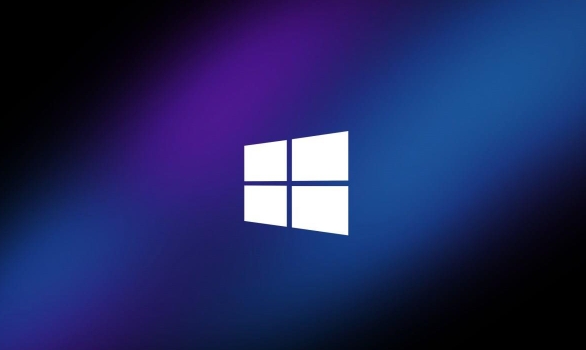To install a built-in or Microsoft Store theme, go to Settings > Personalize > Themes, select or download a theme, and click to apply. 2. For a downloaded .deskthemepack file, double-click it to install, then apply it from the Themes section in Settings. 3. For advanced themes using .msstyles files, use tools like UltraUXThemePatcher, install the theme in C:\Windows\Resources\Themes, and enable it via third-party software after backing up the system. 4. To manually create a custom theme, personalize background, colors, sounds, and cursor individually in their respective settings, then save the configuration under Themes in Personalization for future use.

Installing a new theme in Windows is a simple way to personalize your desktop with custom colors, sounds, wallpapers, and cursor styles. Here’s how to do it, depending on your version of Windows (mainly Windows 10 and 11):

1. Use Built-in Themes from Microsoft
The easiest way to change your theme is to use the ones already available in Windows.
Steps:

- Right-click on your desktop and select Personalize.
- In the Settings window, go to the Themes section.
- Browse the Available themes from Microsoft (like "Windows," "Flowers," "Animals," etc.).
- Click on any theme to apply it instantly.
You can also download more free themes from the Microsoft Store:
- Open the Microsoft Store app.
- Search for "themes".
- Pick one you like and click Get or Install.
- Once installed, go back to Settings > Personalize > Themes to apply it.
2. Install a Custom Theme File (.deskthemepack)
If you’ve downloaded a third-party theme (usually a .deskthemepack file), here’s how to install it:

Steps:
- Download the theme file (e.g.,
MyTheme.deskthemepack) from a trusted source. - Double-click the file — Windows will automatically extract and install it.
- Go to Settings > Personalize > Themes.
- Your new theme should now appear in the list. Click it to apply.
? Note: Custom themes may include wallpapers, colors, sounds, and mouse cursors. The wallpapers are usually placed in
C:\Users\Public\Pictures\Sample Picturesor within your user folder.
3. Create or Install Advanced Custom Themes (with Third-Party Tools)
Windows doesn’t allow full theme customization (like changing window frame styles) by default. For that, you’ll need tools like UltraUXThemePatcher or WindowBlinds, especially if you want to use .msstyles files.
Important:
- This method modifies system files and may affect stability or violate Microsoft’s terms.
- Only recommended for advanced users.
Basic steps (for experienced users):
- Install UltraUXThemePatcher (download from official source).
- Reboot your PC.
- Place your custom
.msstylestheme file inC:\Windows\Resources\Themes. - Use a tool like Universal Theme Patcher or StartIsBack to enable it.
- Apply via Personalization > Themes > Desktop Theme Settings (or third-party theme manager).
?? Always back up your system before using these tools.
4. Manually Customize Your Own Theme
You don’t need a .deskthemepack file to create a personalized look.
Customize individual elements:
- Background: Set a custom wallpaper under Personalize > Background.
- Colors: Choose an accent color and enable Automatically pick an accent color from my background.
- Sounds: Go to Control Panel > Sound > Sounds tab to assign a sound scheme.
- Cursor: Change pointer styles in Settings > Bluetooth & devices > Mouse > Additional mouse options > Pointers.
- Save your setup: In Settings > Personalize > Themes, click Save theme and give it a name.
Your custom theme will now appear in the themes list for easy switching.
Basically, installing themes in Windows is straightforward for standard looks, and possible (with extra tools) for deep customization. Just stick to trusted sources and avoid system-modifying tools unless you know what you’re doing.
The above is the detailed content of How to install a new theme in Windows. For more information, please follow other related articles on the PHP Chinese website!

Hot AI Tools

Undress AI Tool
Undress images for free

Undresser.AI Undress
AI-powered app for creating realistic nude photos

AI Clothes Remover
Online AI tool for removing clothes from photos.

Clothoff.io
AI clothes remover

Video Face Swap
Swap faces in any video effortlessly with our completely free AI face swap tool!

Hot Article

Hot Tools

Notepad++7.3.1
Easy-to-use and free code editor

SublimeText3 Chinese version
Chinese version, very easy to use

Zend Studio 13.0.1
Powerful PHP integrated development environment

Dreamweaver CS6
Visual web development tools

SublimeText3 Mac version
God-level code editing software (SublimeText3)
 Windows 11 slow boot time fix
Jul 04, 2025 am 02:04 AM
Windows 11 slow boot time fix
Jul 04, 2025 am 02:04 AM
The problem of slow booting can be solved by the following methods: 1. Check and disable unnecessary booting programs; 2. Turn off the quick boot function; 3. Update the driver and check disk health; 4. Adjust the number of processor cores (only for advanced users). For Windows 11 systems, first, the default self-start software such as QQ and WeChat are disabled through the task manager to improve the startup speed; if you use dual systems or old hardware, you can enter the power option to turn off the quick boot function; second, use the device manager to update the driver and run the chkdsk command to fix disk errors, and it is recommended to replace the mechanical hard disk with SSD; for multi-core CPU users, the kernel parameters can be adjusted through bcdedit and msconfig to optimize the startup efficiency. Most cases can be corrected by basic investigation
 How to Change Font Color on Desktop Icons (Windows 11)
Jul 07, 2025 pm 12:07 PM
How to Change Font Color on Desktop Icons (Windows 11)
Jul 07, 2025 pm 12:07 PM
If you're having trouble reading your desktop icons' text or simply want to personalize your desktop look, you may be looking for a way to change the font color on desktop icons in Windows 11. Unfortunately, Windows 11 doesn't offer an easy built-in
 Fixed Windows 11 Google Chrome not opening
Jul 08, 2025 pm 02:36 PM
Fixed Windows 11 Google Chrome not opening
Jul 08, 2025 pm 02:36 PM
Fixed Windows 11 Google Chrome not opening Google Chrome is the most popular browser right now, but even it sometimes requires help to open on Windows. Then follow the on-screen instructions to complete the process. After completing the above steps, launch Google Chrome again to see if it works properly now. 5. Delete Chrome User Profile If you are still having problems, it may be time to delete Chrome User Profile. This will delete all your personal information, so be sure to back up all relevant data. Typically, you delete the Chrome user profile through the browser itself. But given that you can't open it, here's another way: Turn on Windo
 How to fix second monitor not detected in Windows?
Jul 12, 2025 am 02:27 AM
How to fix second monitor not detected in Windows?
Jul 12, 2025 am 02:27 AM
When Windows cannot detect a second monitor, first check whether the physical connection is normal, including power supply, cable plug-in and interface compatibility, and try to replace the cable or adapter; secondly, update or reinstall the graphics card driver through the Device Manager, and roll back the driver version if necessary; then manually click "Detection" in the display settings to identify the monitor to confirm whether it is correctly identified by the system; finally check whether the monitor input source is switched to the corresponding interface, and confirm whether the graphics card output port connected to the cable is correct. Following the above steps to check in turn, most dual-screen recognition problems can usually be solved.
 Want to Build an Everyday Work Desktop? Get a Mini PC Instead
Jul 08, 2025 am 06:03 AM
Want to Build an Everyday Work Desktop? Get a Mini PC Instead
Jul 08, 2025 am 06:03 AM
Mini PCs have undergone
 Fixed the failure to upload files in Windows Google Chrome
Jul 08, 2025 pm 02:33 PM
Fixed the failure to upload files in Windows Google Chrome
Jul 08, 2025 pm 02:33 PM
Have problems uploading files in Google Chrome? This may be annoying, right? Whether you are attaching documents to emails, sharing images on social media, or submitting important files for work or school, a smooth file upload process is crucial. So, it can be frustrating if your file uploads continue to fail in Chrome on Windows PC. If you're not ready to give up your favorite browser, here are some tips for fixes that can't upload files on Windows Google Chrome 1. Start with Universal Repair Before we learn about any advanced troubleshooting tips, it's best to try some of the basic solutions mentioned below. Troubleshooting Internet connection issues: Internet connection
 How to clear the print queue in Windows?
Jul 11, 2025 am 02:19 AM
How to clear the print queue in Windows?
Jul 11, 2025 am 02:19 AM
When encountering the problem of printing task stuck, clearing the print queue and restarting the PrintSpooler service is an effective solution. First, open the "Device and Printer" interface to find the corresponding printer, right-click the task and select "Cancel" to clear a single task, or click "Cancel all documents" to clear the queue at one time; if the queue is inaccessible, press Win R to enter services.msc to open the service list, find "PrintSpooler" and stop it before starting the service. If necessary, you can manually delete the residual files under the C:\Windows\System32\spool\PRINTERS path to completely solve the problem.







